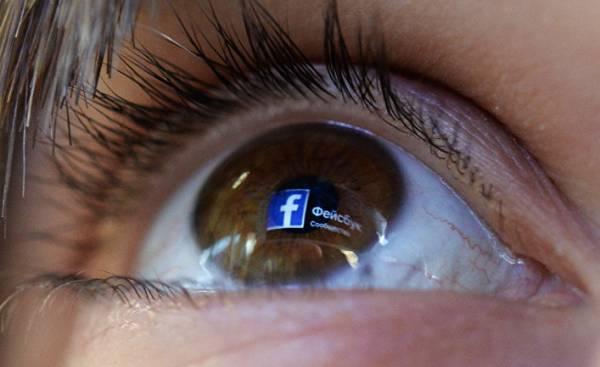
To most of us sooner or later realize that to sit on the Internet means wasting your time. But there’s nothing we can do about it. Columnist BBC Capital advises completely abandon the virtual reality, albeit for a short period of time — this will help you develop healthy habits.
Leaving your home in long beach, California, to spend a few days on the South coast of Panama, David Erickson forced to forget about the smartphone.
In those places where he’s going, no wireless Internet, there is no data transmission — no you social networks and email.
Even to call or receive a call, you need to find the point where there is a connection.
“My phone is good except to show time,” says Erickson, the founder of the company to ensure digital conferencing.
Typically, it is the holiday lasts four days, and the first half of them because of the lack of connection he feels anxiety.
He often looks for places where the signal is thinking, not whether to go to a nearby hotel to connect to the Internet, albeit slow, and attempts to call into the office during those rare moments when access to the mobile network appears.
According to him, to abandon this habit is very difficult, at least at first.
“I feel like I lost the ground under his feet. Separation anxiety is just driving me crazy,” he admits.
The age of anxiety
We understand that spend a lot of time wasted sitting in social networks. But this problem is gaining scale.
According to research company Deloitte, conducted in 2016, we have never been so dependent on their smartphones.
And the company Pew Research found that the number of active users Facebook has reached 1.86 billion people. 24% of Internet users use Twitter and 29% on LinkedIn.
Furthermore, Facebook says that users of the social network spend an average 50 minutes a day.
Many of us put high goals — for example, during working hours not to join in the discussion on Facebook or distracted by the phone at the dinner table.
However, trying to get rid of these habits, we often experience anxiety.
According to Stefan Hofmann, a psychology Professor from Boston University and an expert in the field of research of emotions, refraining from social networking can cause us anxiety and an overwhelming desire to check your account.
This can be described as a digital alarm. Hoffman believes that if people have long suffered negative emotions about the use of social networking and the inability to refuse them, they can fall into depression.
Unable to cope with their addiction, we feel unhappy and distressed.
Hoffman adds that some people start to get nervous, not having network access on the smartphone, because they feel the need to monitor possible threats or political news.
“We live in an age of anxiety,” he says.
Good reasons
Many of us would like to spend less time online, but each time put off the smartphone to the side, we begin to experience anxiety.
Scientists from the Hungarian Academy of Sciences and Eotvos Lorand University in Budapest found that three quarters of young people deprived of a smartphone, showed the so-called “biased behavior” — for example, he began to twirl something in your hand or itchy.
Christina crook, author of “Happiness of ignorance” (Joy of Missing Out), believes that to deal effectively with a digital alarm only if you can clearly explain to yourself why you want to change your behavior in the network.
She advises to find a reason to care network, which would be consistent with your values.
For example, just remind yourself that time spent on social networks, you could give your family members or friends.
Kruk sure that a clear understanding of the considerable benefits you get in return, will help to deal with fears and concerns about the refusal of stay in the virtual world.
“If you have no good reason to refuse from social networks, no willpower won’t help you,” she says.
We want to always stay connected — for a number of reasons. Someone is afraid that will miss the invitation or he is interested in gossip about friends and acquaintances. Someone worried about his carefully maintained network or image is forced to be active in social networks because of their work.
Tell yourself honestly that you are going to do on the Internet and what real benefits it will bring to you. This can also help.
Chris Dugan, head of IT-company Betterworks from Redwood city, California, once used “Facebook” to relax in between tasks.
But the more he does. “For me it was a way to distract and relax a bit,” he says. Now it is a tape filled political posts, and he feels that he loses his concentration and irritated.
Dagan said that some publications still interested, but admits that staying in social networking is not helping him relax.
Due to this, he was able to get rid of their addiction without suffering for this reason any negative emotions.
Last month the firm of Dagana conducted a survey and found that employees average two hours a day spend reading political news, and almost a quarter of them spend in social networks three or more hours a day.
Digital detox — Yes or no
The refusal of social networks can make you worry about what you lost.
However, crook argues that complete abstinence from social networking, even for a short period, the so-called “digital detox” may help to form new habits and learn to control their impulses.
“Digital detox really lowers anxiety, because the conditions of the game are very clear, and you have no choice,” she says.
Use the special locking feature or remove certain apps from your phone — so you can limit their presence in social networks, at the same time reducing the associated anxiety.
So as to give virtual reality the hardest thing in the evening, the crook after 20:00 lifts his smartphone away.
But this is not the only solution. Those who want to spend less time in social networks, Hoffman recommends the following.
First you need to think about what you are looking for and then identify which aspects of social networking you are attracted most of all to continue to effectively deal with their impulses.
It may not be easy. According to Hoffman, the social network designed to unite people and save them from loneliness, but people are gradually beginning to understand that their online communication is artificial, unreal.
One of the advantages of social networking is that they give us a sense of belonging, of community, of belonging, thus eliminating the need to communicate tete-a-tete.
“It’s just a way to find like-minded people and to feel important” — says Hoffman.
To solve this problem is possible by means of communication on topics that interest you with real, not virtual contacts.
In addition, you need to forgive yourself for your mistakes. Don’t blame yourself for lack of self-control, and recognize that many apps and social networks specifically made to be addictive and the desire to use them as often as possible.
For example, users who have not logged in “Facebook” or “Twitter”, get from these companies emails. In the end, if you understand how difficult it is to overcome established habits, you will increase the determination to resist them.
“You will definitely break, warns crook. But I think that the main thing — to believe that going offline is possible.”






